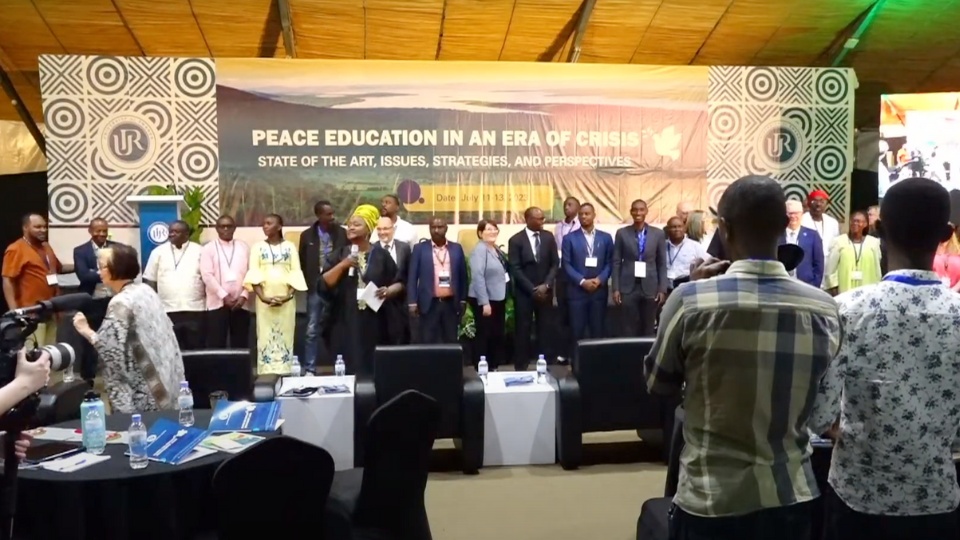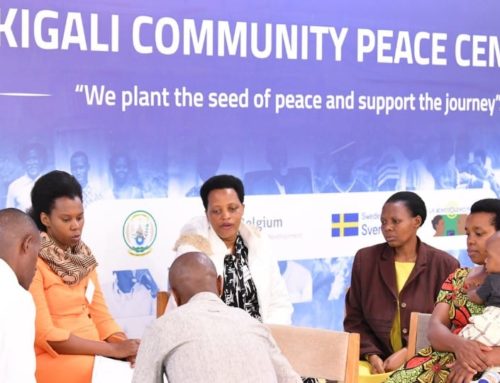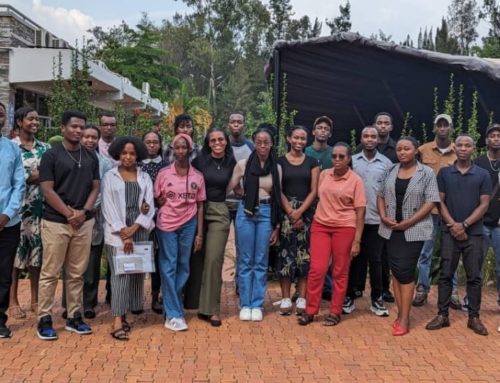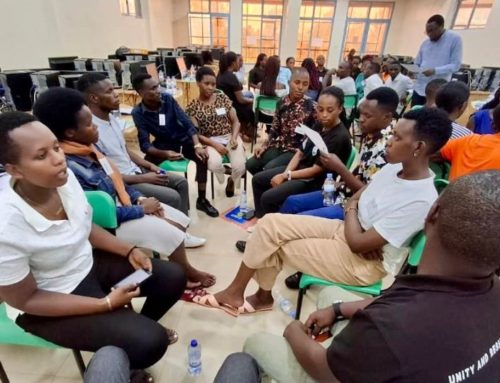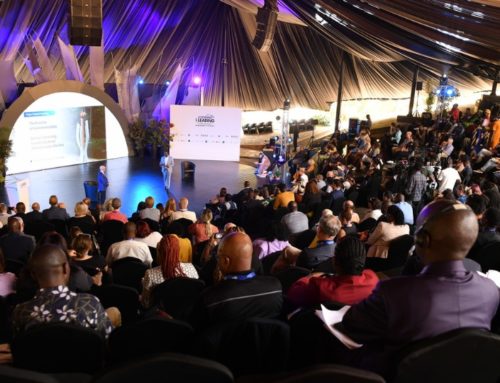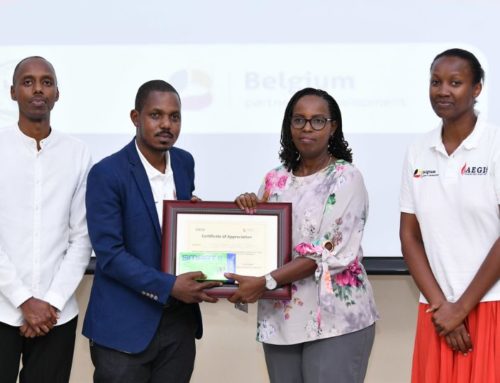A conference organized by Kent University and the University of Rwanda in partnership with the Aegis Trust, Peace Education in an Era of Crisis: State of the Art, Issues, Strategies, and Perspectives was held in Kigali from 11th to 13th July.
The conference brought researchers and practitioners together to engage in mutual discussion, learning and reflection on how best to use peace education, both inside and outside the classroom, to foster the capacities and sensibilities necessary to address conflict, promote wellbeing and realize sustainable peace.
“Rwanda experienced one of the worst atrocities in the 20th century, the Genocide against the Tutsi. With Aegis’ programmes, we work to prevent genocide and mass atrocities worldwide”, says Sandra Shenge, the Aegis Trust’s Director of Programmes. “One of the primary focuses of the conference is to examine how education can serve as a catalyst for resolving conflicts, addressing crises and prevent crimes with the efforts of our partners. From this conference, we aim to shed light on the critical role of peace education in navigating crises and fostering a more harmonious world.”
“Our discussions revolve around the urgent need to address systemic inequalities, discrimination, and human rights violations in educational settings,” commented Dr Aggée Shyaka from the University of Rwanda. “This is especially important because peace education, in its fullest form, promotes and nurtures the understanding, abilities, behaviours and sensitivities needed to effectively confront conflicts, divisions, and injustices in any situation.”
A reflection on challenges to peace in Bosnia
Delivering the keynote address at the opening of the conference on July 11th, Aegis Founder Dr James Smith took the opportunity to reflect on the fact this was the anniversary of the genocide at Srebrenica.
“Our colleagues at the Srebrenica Genocide Memorial are remembering how Bosnian Muslims were shot into mass graves in Europe in 1995. Even as I speak, our friends in Srebrenica are burying 30 genocide victims at the memorial,” he said.
“Despite the presence of that massive memorial, and overwhelming evidence, which includes the prosecution and conviction of perpetrators at international tribunals, the mayor of Srebrenica and the authorities in Republika Srpska continue to deny the genocide.
“I recall Holocaust survivor Waldemar Ginsburg saying what is not acknowledged cannot be healed. We see it so clearly in Bosnia now, how the country is so divided. It is fuelling Serb ethnonationalism and division with a very real danger that war and atrocities could resume in Bosnia.
“We see denial growing on a daily basis, here in the region and worldwide. That’s why the memory of genocide, and how it’s been supported by the government in Rwanda and by survivors, is a crucial foundation on which to build peace education.”

